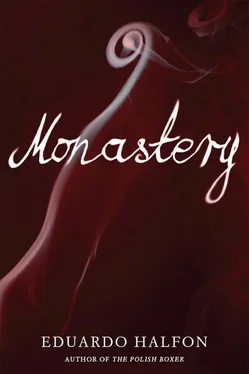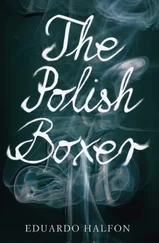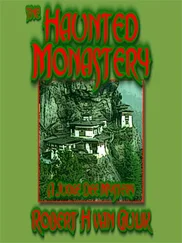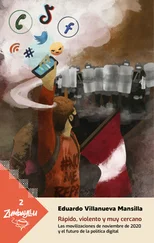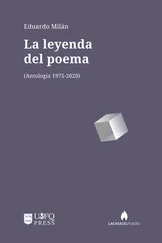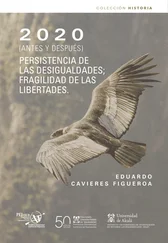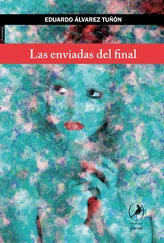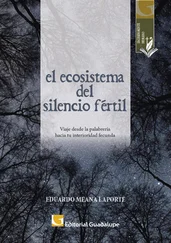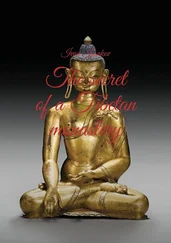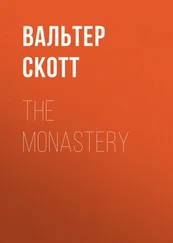I ordered another beer and Yael brought us two Mozas and a plate of potato chips. She stood in front of us. I asked Tamara what her last name was. I remember it was Russian. Halfon is Lebanese, I said, but my mother’s maiden name, Tenenbaum, is from Poland, from Łódź, and they both shrieked. It turned out that Yael’s last name was also Tenenbaum, and as they were verifying the information on my driver’s license, I considered the remote possibility that we came from the same family, and envisioned an entire novel about two Polish siblings who believed their family had been exterminated and then, after not seeing each other for sixty years, were suddenly reunited thanks to two of their grandchildren, one a Guatemalan writer and one an Israeli hippie, who met accidentally at a Scottish bar that wasn’t really a Scottish bar, in Antigua, Guatemala.
Yael took out a liter of cheap beer and filled three glasses. They handed me back my license and we toasted — to us, to them, to the Poles. We fell silent, listening to an old Bob Marley song and contemplating the never-ending brevity of the planet.
Tamara lifted my lit cigarette from the ashtray, took a long drag, and asked me what I did for a living. I told her with a straight face that I was a pediatrician and a professional liar. She held up a hand, as if to say stop. I really liked her hand and I don’t know why I recalled the verse of an e.e. cummings poem that Woody Allen quotes in one of his movies about infidelity. Nobody, I said, trapping her hand like a pale, fragile butterfly, not even the rain, has such small hands. Tamara smiled, told me that her parents were doctors, that she sometimes wrote poems too, and I guessed she had attributed the cummings line to me, but I didn’t feel like setting her straight. And she didn’t let go of my hand.
Yael filled our glasses and I smoked awkwardly with my left hand as they spoke in Hebrew. What’s wrong? I asked Tamara, and with a disconsolate pout she told me that someone had stolen her stuff the day before. She sighed. I spent all morning walking around the craft market, she said, through some ruins, all over the place, and when I sat down on a bench in the Central Park (that’s what people in Antigua call it, even though it’s really a plaza), I realized that someone had slashed my bag open with a knife. She explained that she’d lost a little money and some papers. Yael said something in Hebrew and they both laughed. What? I asked, curious, but they kept laughing and speaking in Hebrew. I squeezed her hand and Tamara remembered I was there and told me that the money didn’t matter as much as the papers. I asked what papers. She smiled enigmatically, like a Dutch girl selling tulips. Four hits of acid, she whispered in bad Spanish. I took a sip of beer. Do you like acid? she asked, and I said I didn’t know, that I’d never tried it. Tamara spoke euphorically for ten or twenty minutes about how essential acid was as a way to open our minds and turn us into more tolerant, peaceful people, and all I could think about while she blathered on was of tearing her clothes off right there in front of Yael and the Germans and any other Scottish voyeur who might care to watch. To get her to stop talking, and to calm myself down, I suppose, I lit a cigarette and passed it to her. The first time I tried acid, with my friends in Tel Aviv, she said as we passed the cigarette back and forth, I got really drowsy, very, very relaxed, and I think I saw God. I seem to recall she used the Spanish word Dios, although she might have used Hashem or God or Adonai or YHVH, the unpronounceable all-consonant tetragrammaton. I didn’t know if I should laugh, so instead all I did was ask her what it looked like, the face of God. He didn’t have a face, she told me. So what did you see? I asked. She said it was hard to explain and then closed her eyes and took on a mystic air and awaited some divine revelation. I don’t believe in God, I said, wakening her from her trance, though I do speak to Him every day, or just about. She turned serious. You don’t consider yourself a Jew and you don’t believe in God? she asked reproachfully, and I just shrugged and asked what for and went to the bathroom before there was any chance to start on such a pointless topic.
AS I STOOD OVER THE TOILET, I saw that despite being slightly drunk I had a limp erection. There was a dark puddle at my feet. An old lightbulb hung from the ceiling. The wall in front of me, behind the only toilet, was full of colorful graffiti — words and sayings and names and drawings and even poems. My eyes immediately searched for anything crossed out, anything forbidden, and I recalled the canvasses of Jean-Michel Basquiat, who wrote words on them and then crossed some out, so you’d see them more, he said — the very fact that they were obscured, he said, made you want to read them. I washed my hands, thinking about my grandfather, about Auschwitz, about the five green numbers tattooed on his forearm that throughout my entire childhood I’d believed were there, as he himself had told me, so that he wouldn’t forget his phone number — his way of crossing them out, I suppose, of forbidding them. And I thought about Łódź, about his apartment in Łódź on the first floor of a building on the corner of Zeromskiego Street and Persego Maja Street, number 16, near the Zielony Rynek market, near Poniatowskiego Park, in which he and his girlfriend Mina and their friends were playing a game of dominoes when the German or Polish soldiers captured them all one afternoon in November of 1939. And I thought about the way my grandfather’s face looked both cynical and disappointed every time I told him that I wanted to visit Poland, Łódź, the Zielony Rynek market, his apartment on the corner of Zeromskiego Street and Persego Maja Street, where that afternoon he saw his siblings and his parents for the last time, and where, in November of 1939, after that game of dominoes was interrupted, he’d never returned. What do you want to go to Poland for? he used to say. You shouldn’t go to Poland. The Polish betrayed us.
FAMILIJNY MLECZNY BAR. That’s what I saw in another city, outside another bar, painted in gold letters on the glass of the front door. Milk bar, I remembered having read someplace before traveling to Warsaw. Classic Polish cafeterias. Very communal. Very cheap. Vestiges of another time, a time more austere and less globalized. I was standing on Nowy Swiat Street — which means New World in Polish, I later learned — freezing in pink in the premature night, watching diners through the enormous front window: them too mostly vestiges from another time. The last bastion, I thought. The last refuge of the old world, I thought, right here in the middle of this strange new world. Everything inside was glowing in the night. Everything looked warm, and comfortable, and delicious. I could see that the menu, written on one wall, was only in Polish. Suddenly, a young couple walked in. I acted on impulse and walked in with them.
The line moved quickly — first to the window where a redheaded woman, void of any expression whatsoever, was taking orders and payment; and then to a second window, which opened directly onto the kitchen, and through which customers took their plates. I tried to read the enormous menu written on the wall, but I couldn’t decipher or even recognize the name of anything. We kept moving. In front of me, the two young people were taking off their gloves and scarves and caps and preparing to order. I turned to the tables and noted that everyone was eating quickly, in silence, with near-mechanical movements and expressions. Maybe they were enjoying their dinner, but they seemed determined not to let it show. Briefly, out of the corner of my eye, I saw a pink ghost in the glass, and it took me a moment to realize that I was that ghost, still wearing the pink coat. The young couple finally reached the first window. They ordered their meals and paid the woman. Now it was my turn. I didn’t know what to do, or what to order, or what to say. I leaned over to the couple and asked them if they spoke English. A bit, said the man, and I felt less nervous. I asked him if he could order for me. He stood staring at my huge pink coat, perhaps thrown by my huge pink coat, and I sensed the increasing anxiety of the old people behind me waiting their turn and found myself on the verge of shouting to the man that I was hungry, that my damn suitcase had gotten lost. But luckily all I said was that I didn’t speak Polish. He consulted with his partner. They both had shaved heads, were dressed in black, had tattoos on their arms and necks and rings in their lower lips. What do you want? I told him that it didn’t matter, that he should decide, that I’d have the typical. Soup? Yes, of course, soup. And maybe a kielbasa? Yes, that too, a kielbasa. And black tea? Yes, thank you, black tea, and I listened to him order it all from the redhead at the first window. I also ordered you some dessert, he said. You’ll like it, he added. Naleśniki z serem, that’s what it’s called, and he smiled. I thanked him again and they moved up a few steps toward the second window. The redheaded woman said something to me that I didn’t understand but took to be the grand total of what I owed her for my dinner. I gave her a few bills, a few złotys, and she, still tight-lipped, and still wearing no expression whatsoever, and as stiff and automatic as her old cash register, handed me my change.
Читать дальше
